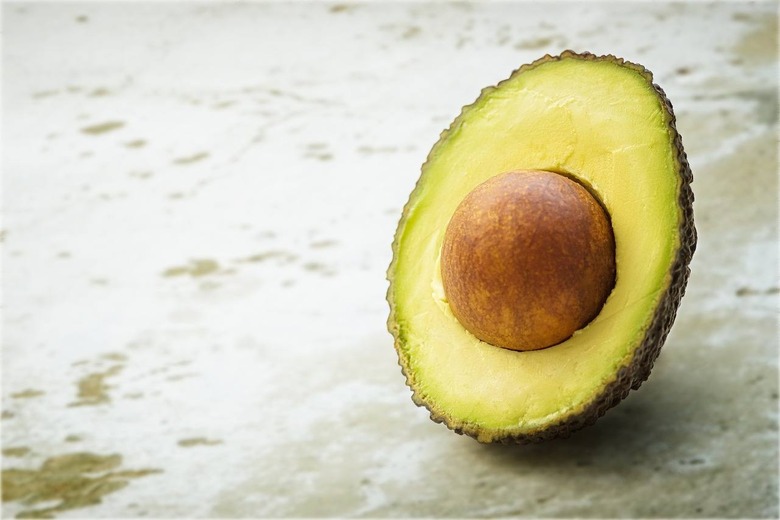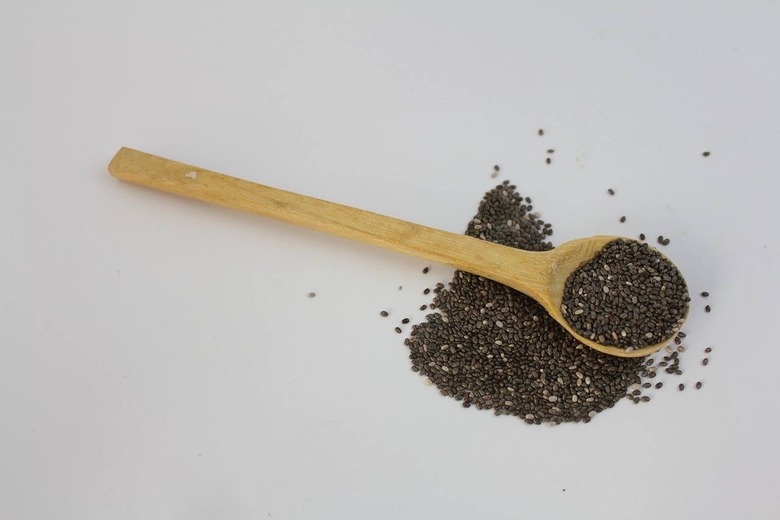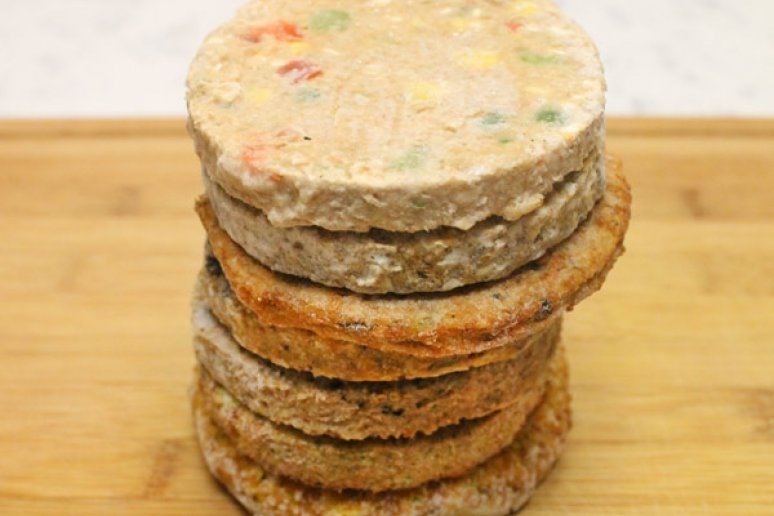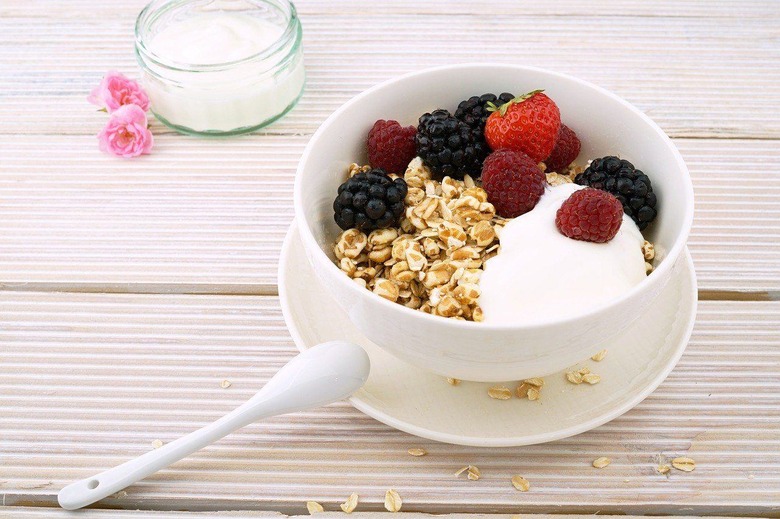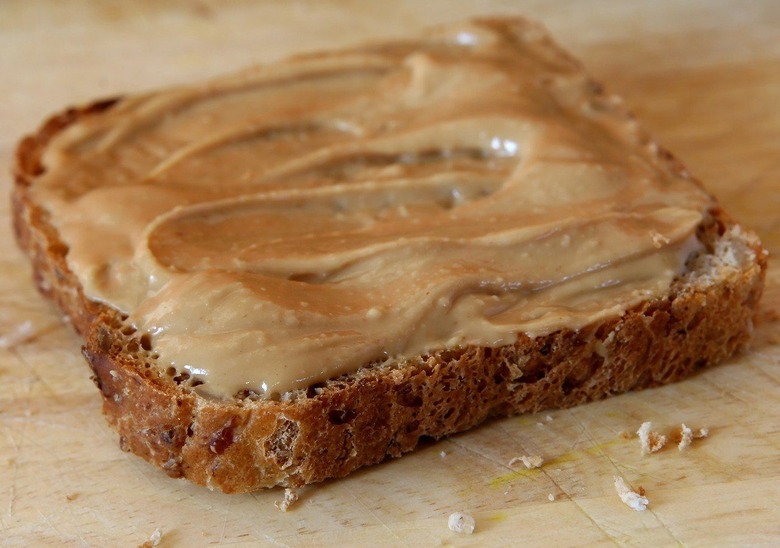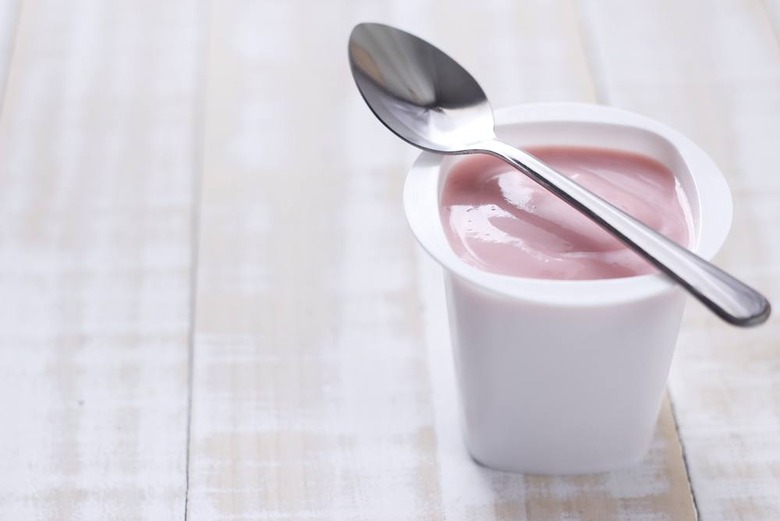You'll Never Believe The Calories In These 10 'Health Foods' Slideshow
I understand that calling out avocados as anything less than a miracle food is a declaration of war, but these irresistible fruits are in fact super caloric. One average-sized avocado contains 332 calories, and if you're using chips to scoop up that homemade guacamole appetizer, you could easily wolf down 500 calories before dinner even begins.
Chia Seeds
These seeds are the darling of the superfood world, but that doesn't mean they aren't high in calories. One ounce of chia seeds (around two tablespoons) is 138 calories, and although this doesn't seem like too many, these calories can add up when you liberally heap spoonfuls of chia seeds into your morning smoothie.
Dried Fruit
Oh, dried fruit, I want to love you, but you consistently raise eyebrows with all of that added sugar. A half cup of raisins is over 200 calories, while a half cup of dried blueberries is over 250. If you want your dried fruit fix, go with dried apples; they contain only 104 calories per half a cup.
Frozen Vegetable Patties
Since they consist mostly of grains, legumes, and vegetables, veggie burgers are perceived to be more natural and nutritious then traditional meat-based burgers, but this isn't necessarily the case. According to Livestrong.com, veggie burgers usually contain between 70 and 170 calories, 10 grams of protein, and zero grams of saturated fat, but 350 milligrams of sodium per each 2.5-ounce patty. In comparison, the same quantity of ground beef (85 percent lean and 15 percent fat) has only 152 calories, 15.6 grams of protein, and 55 milligrams of sodium. Add on a 100-calorie bun, a slice of cheese, and a smear of mayonnaise, and veggie burger becomes no longer a health food.
Frozen Yogurt
The factor that sets ice cream and frozen yogurt apart is their fat content. In order for a frozen dessert to be labeled "ice cream" it needs to contain at least 10 percent milkfat. Frozen yogurt is made with cultured milk, and is absent of any cream or milkfat, but that doesn't mean it's any healthier than ice cream. One cup of froyo contains 230 calories and 34 grams of sugar, and if you think you're getting any of yogurt's beneficial probiotics, think again; probiotics can't survive freezing temperatures.
Click here for 10 reasons dietitians won't eat frozen yogurt.
Granola
Basically oats tossed with honey and dried fruit, granola was synonymous with the organic, doobie-smoking, hippie generation of the 1960s, but it has seriously evolved over the decades. There are 452 calories in a cup of granola, which is a lot for a food that is often munched by the handful. Save some calories and added sugars by making granola at home.
Nuts
Almonds, pecans, and cashews are ideal snack foods because they contribute fiber, omega-3 fatty acids, and complex carbohydrates into a diet, but they're still calorically dense. For example, two-ounces of walnuts (around 28 halves) contain 366 calories. Make nuts go further by mixing them into plain Greek yogurt rather than eating them on their own.
Peanut Butter
Although peanuts (which a persnickety friend will remind you are legumes, not nuts) are filled with healthy polyunsaturated fats, peanut butter still contains around 100 calories per tablespoon. If a large glob is spread over an English muffin, you're looking at a pretty meager but pretty fattening 300-calorie breakfast.
Pita Bread
Just because it's associated with the Mediterranean diet doesn't mean pita bread is healthy. Most brands are made with refined white flour, which the body breaks down into sugar almost immediately. A six-inch pita is 165 calories, which isn't terrible (it's about the same as a can of Coca-Cola), but when it's repeatedly dipped into a container of hummus the calories can really rack up.
Yogurt (Flavored)
Flavored yogurt is deceivingly unhealthy. To mask the natural tang of the yogurt, many brands add fruit, along with tablespoons of sugar and flavorings, which overshadow any of the yogurt's natural health benefits. One container (usually around six-ounces) contains 150 calories, most of which are derived from sugar.
